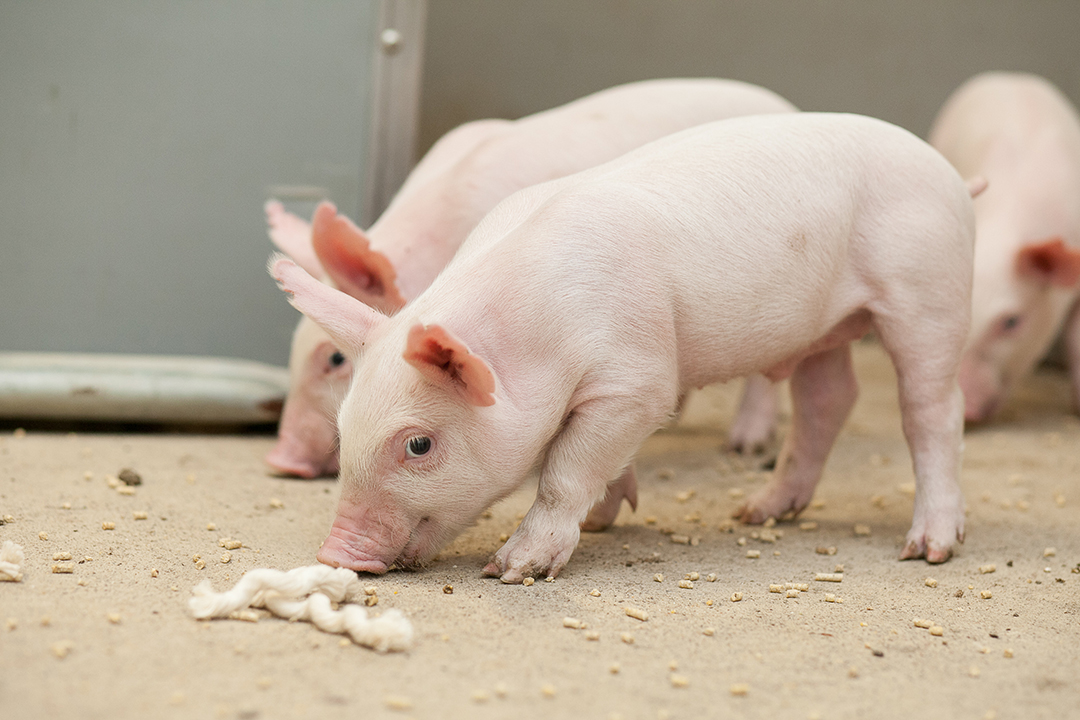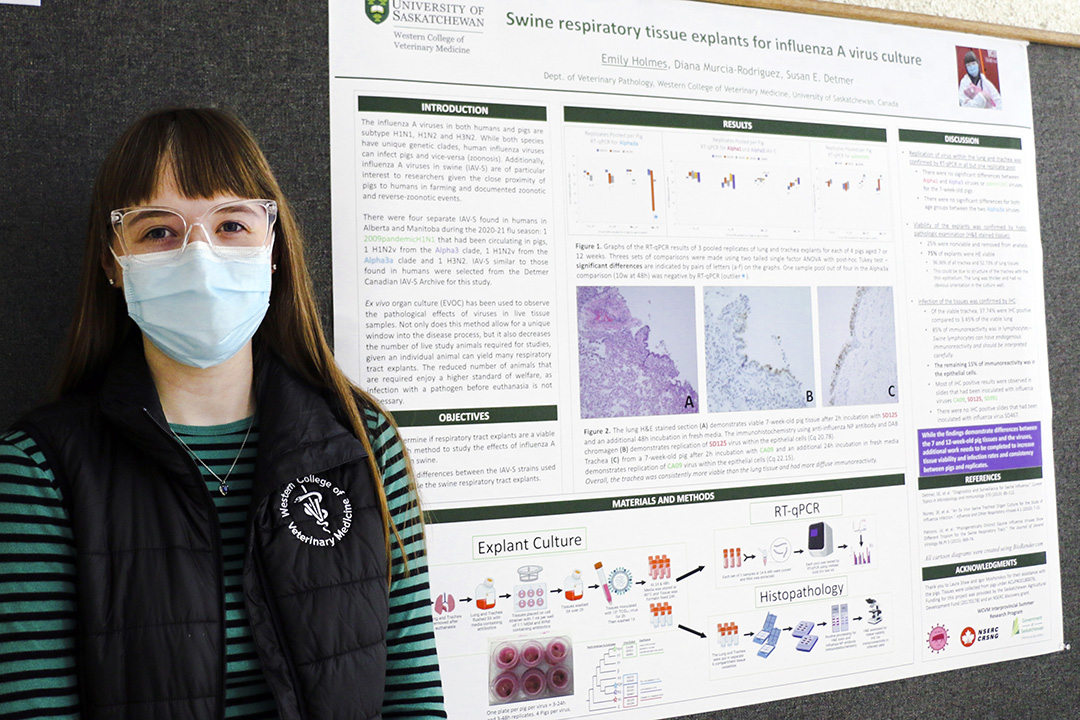
What a swine flu vaccine can teach us
Wary of the COVID-19 vaccine? Well, eat some pork and relax. Scientists have been whipping up vaccines in short order for decades, and the fact you can still enjoy your morning bacon is proof that these vaccine products are safe and effective.
By Emily HolmesImagine you’re a pork producer in Canada, and you’ve vaccinated your pig herds against influenza A viruses (sometimes called swine flu when it infects pigs).
But this year, your pigs are still getting sick.
When you talk to your veterinarian, they suggest something called an autogenous vaccine — a vaccine that is custom-made for the exact strain of swine flu that’s infecting the pigs on your farm. You’re shocked to learn that this process will only take eight to 10 weeks — who knew that vaccines could be made that quickly?
What people don’t realize is that companies make brand new vaccines and bacterins (a vaccine against a particular bacterium) all the time, and they’ve been doing so for decades. These vaccines, known as autogenous vaccines, can protect against a whole array of diseases that afflict a variety of species.
An autogenous vaccine can be described as a prescription that’s customized from the farm and for the farm. With autogenous vaccines, producers can target the source of the illness rather than hoping that a commercial vaccine that has 15-year-old American strains not seen in Canada will protect their herds.
“There’s a lot of quality testing in the making of an autogenous vaccine,” explains Anna Pietruszkiewicz. She’s a senior manager at Gallant Custom Laboratories, an Ontario-based vaccine manufacturing facility that serves clients across Canada. She emphasizes the safety of these vaccines despite their short production time.
“We can’t skimp on the testing because it’s our name on the product. So we’re going to make sure it’s tested and done properly so that everything is done right, and the animals are as protected as we can make them.”
Unfortunately, influenza viruses can mutate very rapidly — and that’s why autogenous vaccines are an emergency product designed to target the latest virus mutation.
Even when producers diligently vaccinate their herds against swine flu, the virus can evolve so quickly that the vaccine becomes ineffective. In fact, the animals have never been vaccinated against the particular strain that is suddenly infecting the herd.
For that reason, most of the commercially available vaccines for swine flu do not actually protect against most of the influenza A strains that are found in Canada.
“If you have a commercial product that includes strains A and B, but the sample is strain C, it may or may not work,” says Pietruszkiewicz.
When there’s no match between the strain in the vaccine and the one causing the infection, there’s no immune response; as a result, the animal becomes sick and can spread the virus to others.
“There are many phylogenetic clusters of H1 and H3 influenza A viruses in pigs that have enough antigenic differences to eliminate cross-protection. The virus strain needs to be at least in the same genetic cluster or subcluster to match. This means we need something customized, and that means autogenous vaccines,” says Dr. Susan Detmer, an associate professor and veterinary pathologist at the Western College of Veterinary Medicine (WCVM).
Detmer’s research work focuses on influenza A viruses and other infectious diseases in swine, and she’s the only scientist conducting active surveillance of influenza A viruses in Western Canada. Detmer emphasizes that autogenous vaccines must pass the same safety standards as commercial vaccines in a licensed facility such as Gallant Custom Laboratories, Inc. before they’re approved for release by the Canadian Food Inspection Agency.
If scientists are so good at making custom vaccines, then why did the COVID-19 vaccine still take many months to create? Pietruszkiewicz explains that trying to make a vaccine against a newly discovered virus is much more complicated than creating one against a new viral strain of a familiar virus.
“Viruses are finicky little creatures,” says Pietruszkiewicz. “If you don’t have the right cell line, it’s not going to grow.”
“They also used new vaccine technology that bypasses growing the virus, which can be a limiting factor in updating a vaccine,” adds Detmer. “The new RNA-based vaccine was developed for use in pigs over 20 years ago and can reduce the vaccine production time by a month.”

Although COVID-19 is new, the technology used to study and create vaccines against it is not. The vaccines were manufactured and safety tested as quickly as possible to save lives. And like the many other new autogenous vaccines that have been developed over the past few decades, the vaccines are very good at doing just that.
“People are afraid of the unknown,” says Pietruszkiewicz. “But sometimes what is unknown to them has been known to scientists or microbiologists for decades. It’s not that scary.”
Emily Holmes of Nanaimo, B.C., is a third-year veterinary student at the Western College of Veterinary Medicine (WCVM) who worked as a summer research student in 2021. Her story is part of a series of articles written by WCVM summer research students.
